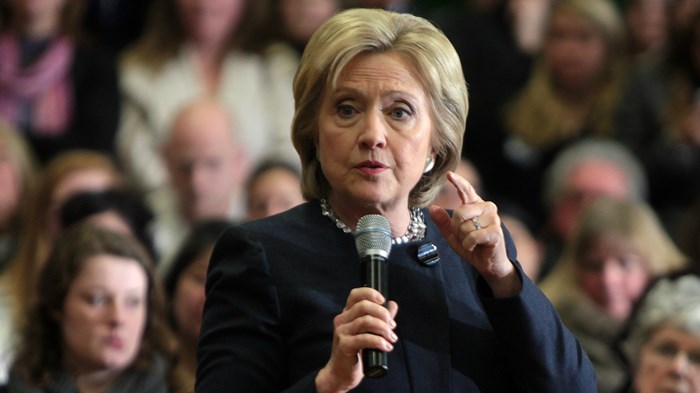
Not much about the 2016 presidential campaign has been business as usual. In addition to nominating two divisive candidates, both parties are challenging major political measures that have long been off the table.
On the Republican side, Donald Trump promises to repeal the Johnson Amendment—the 60-year-old tax code statute that bans churches and other tax-exempt nonprofits from endorsing political candidates.
On the Democratic side, it’s the Hyde Amendment—the legislative provision that prevents the federal government from directly funding abortions.
Hillary Clinton has taken up Hyde on the campaign trail, saying it keeps low-income women on Medicaid from affording the procedure, particularly with stricter regulations from states and tighter funding for Planned Parenthood. It’s an unusual move, even for pro-choice politicians, who typically accept Hyde’s restrictions as a compromise with pro-life counterparts.
Her challenge shakes things up for Democrats who lean pro-life or support certain restrictions on abortions—including her Catholic running mate Tim Kaine. The Virginia senator reversed his support of the amendment once he joined the Clinton campaign.
Former Obama White House faith director Michael Wear and Southern Baptist Ethics and Religious Liberty Commission president Russell Moore criticized the position in a USA Today op-ed:
… for the past 25 years, the Democratic Party, at least rhetorically, acknowledged that compelling taxpayers to fund abortions was a step too far in the culture wars. If the call to repeal the Hyde Amendment remains in the Democratic platform, that era is officially over. A party that calls for government funding of abortion does not merely disagree with pro-life Americans, but wants to implicate them through their government of supporting what they believe is a moral evil.
According to the Pew Research Center, 28 percent of Democrats believe abortion should be illegal in all or most cases (compared to 59 percent of Republicans). A separate Pew study found that almost half of evangelical Democrats agree:
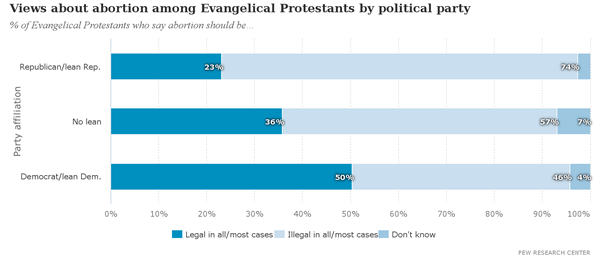
Meanwhile, about one-third of white evangelicals say abortion should be legal in all or most cases. This percentage has stayed steady since 2007.
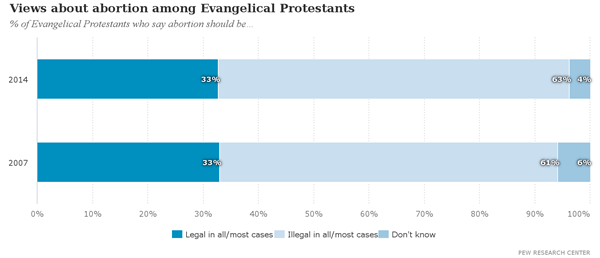
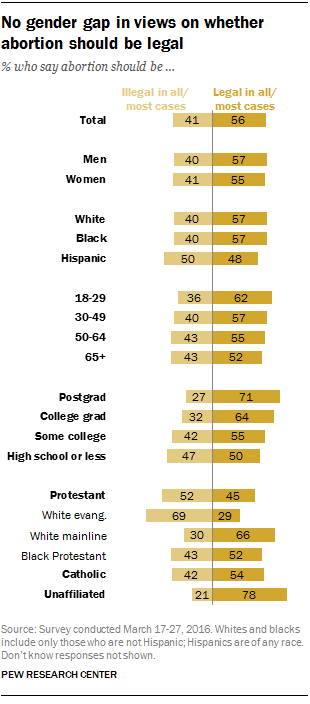
Democrats for Life counts 21 million pro-life voters in the party—which is why the attack on the Hyde Amendment concerns the group.
“Removing even a nod toward ‘religious liberty’ from the platform puts Democrats at fundamental odds with the many religious organizations whose mission is nonviolence and protection of the most vulnerable,” wrote executive director Kristen Day and Fordham University professor Charles Camosy.
The move to repeal Hyde “means the party that is supposedly on the side of justice for the vulnerable no longer welcomes those of us who #ChooseBoth; that is, those of us who want the government to protect and support prenatal children and their mothers,” they said.
Pro-life Democrats in Congress have been cut in half again and again, due to redistricting and retirements plus the Obamacare debate. A defamation suit between Steve Driehaus and the Susan B. Anthony List encapsulated the tensions.
The Hyde Amendment has been added as a budget rider since 1976—recently preventing Obamacare dollars from being directly spent on abortion. As the progressive site Think Progressreported, the Hyde Amendment set the status quo for federal abortion policy and “spawned similar restrictions banning abortion coverage for government employees, Peace Corps volunteers, federal inmates, military personnel, and Native American women.”
Clinton’s push to repeal Hyde could also be a turnoff for Hispanic Democrats, who are largely Catholic and evangelical, according to a recent CT op-ed.
Pew found that 17 percent of white evangelicals side with Clinton in this election—and 10 percent of that is mainly opposition to Donald Trump.
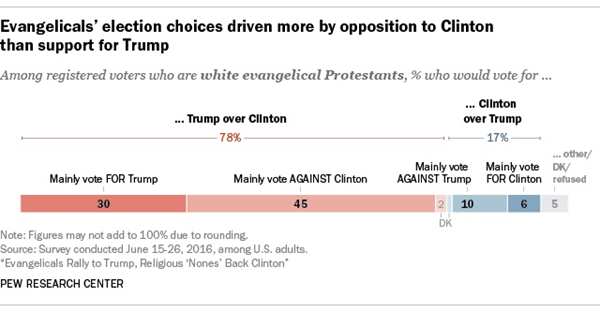
Pew also found that abortion ranks near the bottom of the issues that white evangelicals are weighing in 2016. Only 52 percent labeled it "very important" for their choice of president:
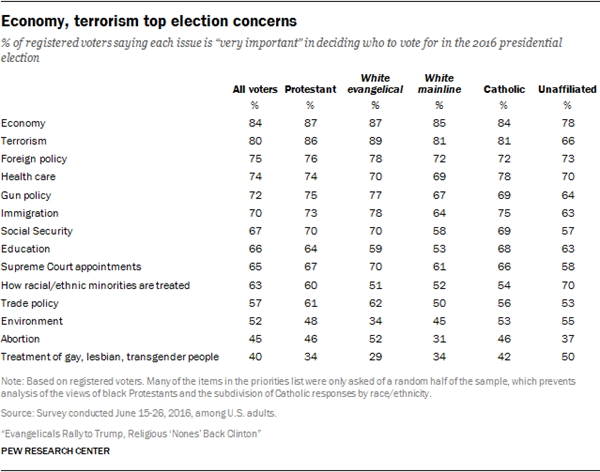
CT has continued coverage of the 2016 presidential election, including an interview with Clinton biographer Kristen Du Mez on this week’s Quick to Listen podcast. CT also noted when being pro-life didn’t mean Republican.

Support Our Work
Subscribe to CT for less than $4.25/month




















